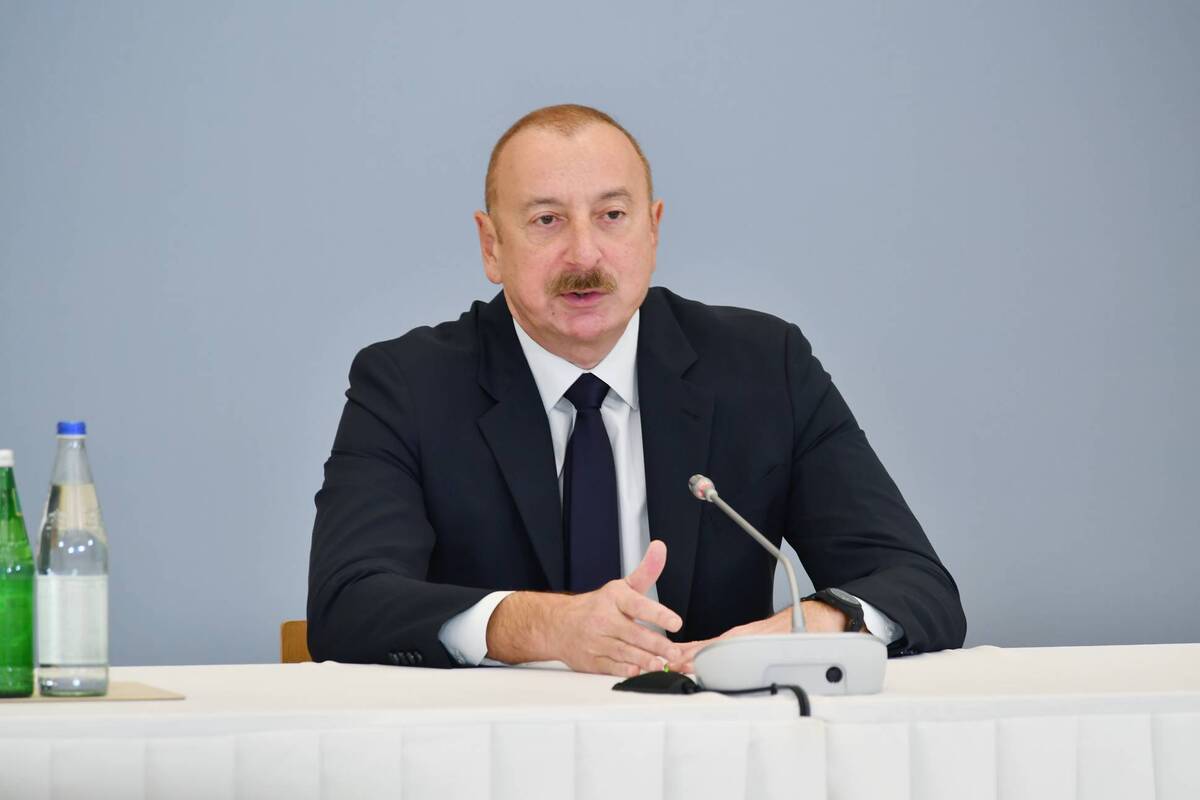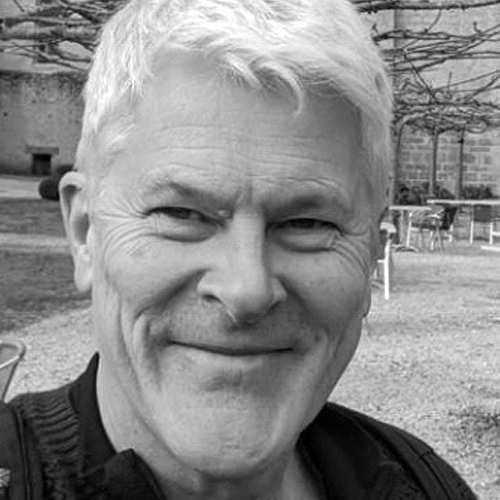- Home
- Aliyev Unplugged – candid comments and responses in Baku
8 December 2023
Aliyev Unplugged – candid comments and responses in Baku
This week’s announcement in Azerbaijan of snap elections along, with new hopes for peace, were prefaced with in depth comments by President Aliyev which have helped clarify his stance on many key issues.

Image: president.az
On December 6, Azerbaijan’s president Ilham Aliyev made an extensive speech at ADA University in a forum entitled "Karabakh: Back Home After 30 Years. Accomplishments and Challenges". This was followed by a detailed Q&A in which he responded to delegates who were drawn from some 30 countries. The full transcript is available online but here we give some key takeaway points arranged by subject.
Events in Karabakh
Mr Aliyev stated that the liberation of Azerbaijan’s occupied territories had always been “a main goal of my political life. And I'm proud that these goals have been achieved.” After 2020 he had keenly wanted to integrate rump-NK peacefully (much in the way that Baku had tried for almost 30 years to find a peaceful solution to regaining land occupied by Armenia). “But, unfortunately, it was not possible.” Baku had been “very patient” but until September 2023 Aliyev estimated that “close to 15,000” active military had remained in place, a situation that could not be tolerated by Baku any longer.
In September there were two trigger events that proved to be red lines from Azerbaijan’s point of view. One was the Armenian Prime Minister’s congratulation “to the so-called Nagorno-Karabakh Republic with respect to its so-called independence”. The second red was the holding of elections for a “so-called president of the so-called Nagorno-Karabakh Republic. In the “Anti-Terror Operation” President Aliyev was proud that his forces had managed to restore full sovereignty in less than 24 hours “without any damage to civilian infrastructure [or] any casualty among civilians”. He explained that Baku had announced that if the separatist forces and their Armenian helpers laid down their weapons, the operation would stop and they would be allowed to leave. And that’s what happened.
The so-called Nagorno-Karabakh republic really had no chance to survive as a quasi-state. Eventually, Aliyev argued, it would have to integrate with the rest of Azerbaijan or to disappear altogether so Baku had not been in a hurry. September’s “anti-terror operation was not planned by us in November 2020” he insisted. But now war has proven a facilitator to peace.
International Repercussions
Mr Aliyev regretted that his country now faces “some misunderstanding from the countries which we considered to be our partners” and that now “we are trying to explain our position.” He insists that the action is well within international legal norms based on the right for self-defense enshrined in Article 51 of the UN Charter.
What next for the Karabakh Armenians?
President Aliyev sympathised with the tens of thousands of Karabakh Armenians who had felt the need to flee to Armenia saying “We think that they have been the subject of manipulation by the leaders of separatists.” Underlining that Karabakh Armenians are Azerbaijani citizens with equal rights, he admitted that the process of building confidence had been taking a long time and that there had been a “kind of barrier between us and Armenians in Karabakh”. A process to improve communication had begun but with representatives of the Armenian community, but after an initial meeting in Khojaly, subsequent meetings planned for Yevlakh were refused “by Karabakh Armenians, I mean those who consider themselves leaders”. Perhaps they were hung up on the use of the term “reintegration”.
Aliyev insists that such reintegration was to be using “best practices based on European conventions on national minorities” and would have included the “right for education in their own language, religious rights, cultural rights” etc and the right to select representatives through the 2024 municipal elections. This offer was refused but remains on the table. Azerbaijan still offers “full protection of the Armenian historical heritage” and personal property of those wishing to return.
For those who have decided to stay on, Aliyev underlined that social protection agencies have been assigned to ensure that there is assistance for “those who cannot provide their own comfort” – given that such a large proportion of the population left at once, maintaining a working societal structure is challenging.
Meanwhile, Aliyev stated that Azerbaijan expects the same policy from Armenia towards Azerbaijanis that might wish to return to their ancestral homes: perhaps “an electronic reintegration portal to provide the information about their own villages” even though many are currently destroyed or abandoned.
Organization of Turkic States
Mr Aliyev stressed security issues and noted that the Organization of Turkic States could usefully elaborate a kind of roadmap to ensure a “very close cooperation in defense, [the] defense industry, joint manufacturing, joint trainings of military servicemen [and] joint efforts with respect to the protection of our borders.” This is now under consultation and “we will see how far we can go” in the current unpredictable geopolitical situation.
Azerbaijan and the EU
President Aliyev said that Azerbaijan understands Georgia's EU aspirations and wishes them success but remembers the interminable delays that Türkiye had despite being a candidate for years. Baku itself has no such plans knowing “we will never be allowed in.” Generally, relations with the EU are excellent despite the “absolutely counterproductive” recent Karabakh statement of Josep Borrell, the Union’s High Representative for Foreign Affairs. But Aliyev said that he realises some individuals speak out of turn and described a “group of very irresponsible people in the European Parliament” as maniacs with sentiments “beyond any normal psychological status of a human being.” He blamed such folks for a slew of anti-Azerbaijan resolutions but was confident that overall Europe understands Azerbaijan’s importance especially in respect to energy security.
Nakhchivan Corridor
Since 2020 Baku has been trying to chivvy Armenia into facilitating a seamless transit corridor to Azerbaijan’s the disconnected Nakhchivan exclave. Yet not even a basic planning process has happened. So finally Azerbaijan has agreed to a more expensive option of building via Iran. This is a wasted opportunity for Armenia as the route will eventually connect to Turkiye as a major trans-Asian trade route.
Environmental Awareness
Azerbaijan is bidding to host COP29, underlining the country’s commitment to global responsibility. Yes the country has 2.6 trillion of natural gas deposits but investing in renewables is very much Baku’s policy direction. Besides, by substituting gas for renewables in domestic electricity production, an extra 2.5-3 billion cubic meters of gas is available medium-term for Europe, which needs it. “So, it will be a win-win situation.”
The country has also lost over 60,000 hectares of forests illegally felled in during the period of occupation particularly in Kalbajar, Lachin and Zangilan regions. Trans-boundary river pollution is also a worry. Restoration will be a long process.
Relationship between Azerbaijan and Central Asia
Every country has its own challenges but an important factor “for all of us is political stability” in a world that’s suffering a “wave of instability”. Aliyev noted that he has “very good and friendly relations” with all Central Asian leaders and that Central Asia and Azerbaijan are “actually one historical and geographical area.” He believes there’s growing mutual political support in international institutions, including the UN, as well as improving trade, and development of shared transportation routes which, with investment, modern technology and an upgraded Caspian fleet is destined to grow. There’s a possibility of building a subsea cable across the Caspian allowing fibre-optic connection to Europe.
Championship of the Non-Aligned Movement
“These four years were extraordinarily important for us” from point of view of institutional development .
Land Mines
Of almost a million mines estimated to have been planted during the occupation, maps show just 400,000 and with only 25% accuracy. Plus there are hundreds of thousands of new mines. Based on parallels in the Balkans, this tragic legacy will likely persist decades into the future. Training deminers takes time and the job is perilous - nearly 350 have been seriously injured with 65 killed. Another incident happened this week.
Most maps provided by Armenia proved useless, and accidents occur even in areas where they’re more accurate.
Read this next






